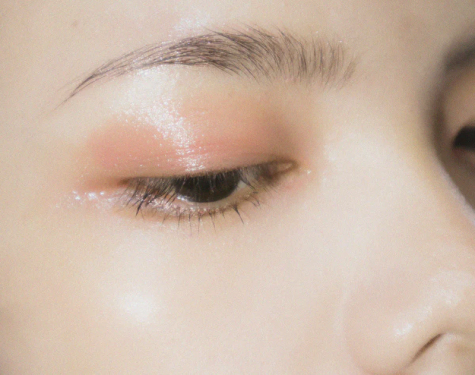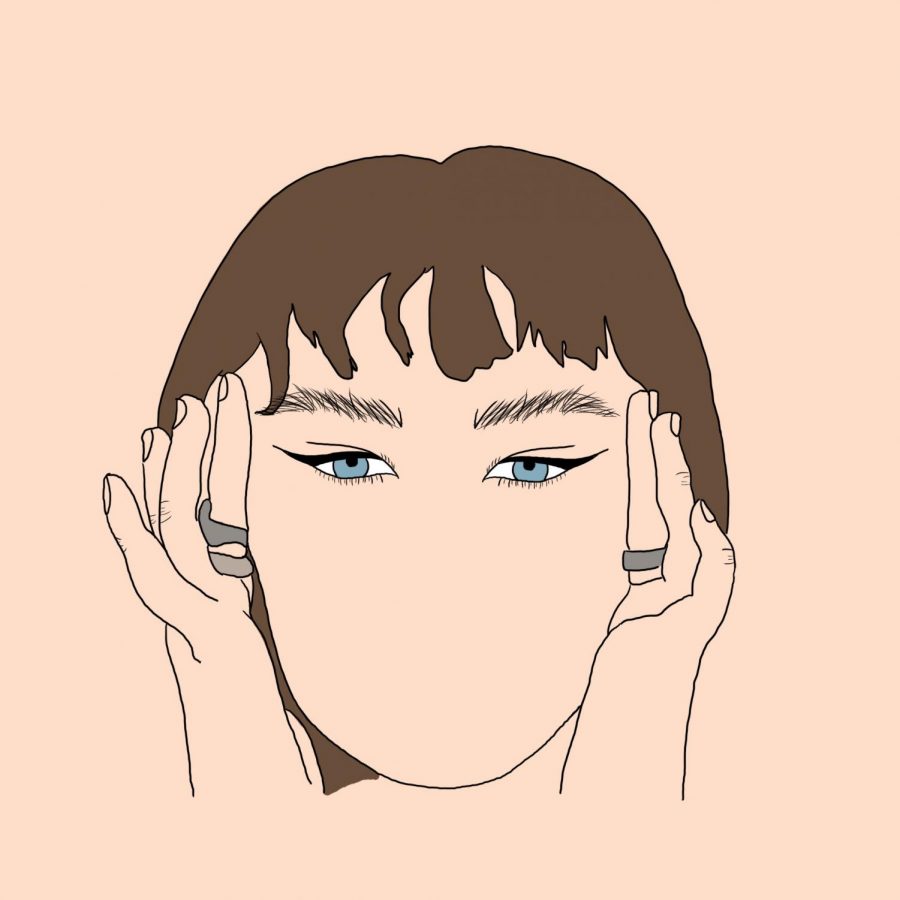Fox Eye: Cultural Appropriation or Appreciation?
The fox eye “trend” includes winged eyeliner and a pose, pulling at the end of the eyes.
September 1, 2020
A recent makeup trend on Tiktok dubbed the “fox-eye” by makeup artists and popularized by famous models like Bella Hadid and Kendall Jenner aims to create a lifted, elongated eye shape using manipulations of eyeliner and specific posing. However, for many Asian teens, the words “fox eye trend” feels frighteningly similar to their own experiences of being made fun of for their eye shape, and the poses parallel the motion used to mock their eye shape.
On Tiktok, videos involving white women pulling their eyes upwards to emphasize the slender, upturned look achieved millions of views, before being deleted after they recently received backlash for being culturally insensitive. Many Asians, especially teenagers, felt angry that such an eye shape popularized by white women had become desirable and trendy, though Asians had experienced centuries of racism and shame for their naturally upturned, slender eyes. The situation began to escalate after other non-Asians argued against those offended by the trend, claiming it was not racist and that they were overly sensitive, creating deeper emotional wounds for Asians, whose voices have been repeatedly silenced by white people for years.
 Chloe Lee, a junior at O’Dowd, shares her experience with racism and being made fun of for her Asian features. She shares, “…as I grew up, I noticed that some people in person and online would pull their eyes back at me and mock Asian languages… as an Asian girl who grew up always wanting to be white, have bigger eyes, and getting made fun of for my eyes, it’s so hard seeing other non-Asian people with the ‘ideal’ eye shape trying to make their eyes look more slender.” Specifically, regarding the fox eye makeup, she says, “Almost every Asian person has experienced some form of hate regarding it whether it be someone pulling the skin by their eyes back or someone asking if an Asian person can see. The fact that people now want to turn it into a trend and completely ignore the oppression that Asian people have faced because of their eyes is infuriating.” Chloe’s perspective mirrors that of many other Asians’ reactions and speaks out on the same issue of not having their own experiences validated by non-Asians.
Chloe Lee, a junior at O’Dowd, shares her experience with racism and being made fun of for her Asian features. She shares, “…as I grew up, I noticed that some people in person and online would pull their eyes back at me and mock Asian languages… as an Asian girl who grew up always wanting to be white, have bigger eyes, and getting made fun of for my eyes, it’s so hard seeing other non-Asian people with the ‘ideal’ eye shape trying to make their eyes look more slender.” Specifically, regarding the fox eye makeup, she says, “Almost every Asian person has experienced some form of hate regarding it whether it be someone pulling the skin by their eyes back or someone asking if an Asian person can see. The fact that people now want to turn it into a trend and completely ignore the oppression that Asian people have faced because of their eyes is infuriating.” Chloe’s perspective mirrors that of many other Asians’ reactions and speaks out on the same issue of not having their own experiences validated by non-Asians.
For many, the makeup trend is just another reminder of the normalization of racial oppression Asians have experienced in America. By continuing the belief that the fox eye trend is not racist, people fail to recognize the history of racial oppression and forced assimilation of Asian immigrants. Eyelid surgery to remove the epicanthic fold, a feature unique to Asian eyes which creates a more angled, almond shape, is one of the most popular surgeries today. It allows the patient to have more open, “Western” looking eyes. By popularizing and glamorizing typically Asian eyes, the pain and suffering that came from being taunted about them is ignored and invalidated. By ignoring the racist undertones of the trend, whether it be malicious or innocent, the normalization of racism against Asians and Asian features is perpetuated, causing more generations of trauma, emotional distress, and assimilation within the Asian community.


